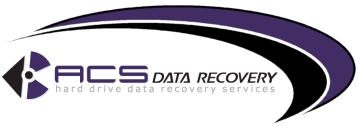|
Case studies include information about actual recoveries
completed within our lab. You may find similar symptoms to a problem
you are having with your drive. Here are a couple of recent cases:
• 250GB
Seagate Clicking
• 1TB Raid
0
|


|
|
**No Evaluation Fees / No Attempt Fees** Free evaluation and free external hard drive with every successfull recovery. You pay nothing unless your data is recoverable. Call now for a free quote: 1-800-717-8974. |
FAT32
In order to overcome the volume size limit of FAT16, while still allowing
DOS real mode code to handle the format without unnecessarily reducing
the available conventional memory, Microsoft implemented a newer generation
of FAT, known as FAT32, with cluster values held in a 32-bit field, of
which 28 bits are used to hold the cluster number, for a maximum of approximately
268 million (228) clusters. This allows for drive sizes of up to 8 terabytes
with 32KB clusters, but the boot sector uses a 32-bit field for the sector
count, limiting volume size to 2 TB on a hard disk with 512 byte sectors.
On Windows 95/98, due to the version of Microsoft's SCANDISK utility
included with these operating systems being a 16-bit application, the
FAT structure is not allowed to grow beyond around 4.2 million (< 222)
clusters, placing the volume limit at 127.53 gigabytes.[14] A limitation
in original versions of Windows 98/98SE's Fdisk utility causes it to incorrectly
report disk sizes over 64GB. A corrected version is available from Microsoft.
These limitations do not apply to Windows 2000/XP except during Setup,
in which there is a 32GB limit. Windows Me supports the FAT32 file system
without any limits. However, similarly to Windows 95/98/98SE there is
no native support for 48-bit LBA in Windows ME, meaning that the maximum
disk size for ATA disks is 127.6GB, the maximum size of an ATA disk using
the previous long-standard 28-bit LBA.
FAT32 was introduced with Windows 95 OSR2, although reformatting was
needed to use it, and DriveSpace 3 (the version that came with Windows
95 OSR2 and Windows 98) never supported it. Windows 98 introduced a utility
to convert existing hard disks from FAT16 to FAT32 without loss of data.
In the NT line, native support for FAT32 arrived in Windows 2000. A free
FAT32 driver for Windows NT 4.0 was available from Winternals, a company
later acquired by Microsoft. Since the acquisition the driver is no longer
officially available.
Windows 2000 and Windows XP can read and write to FAT32 file systems
of any size, but the format program included in Windows 2000 and higher
can only create FAT32 file systems of 32 GB or less. This limitation is
by design and according to Microsoft was imposed because many tasks on
a very large FAT32 file system become slow and inefficient. This limitation
can be bypassed by using third-party formatting utilities or by using
the built-in FORMAT.EXE command-line utility.
The maximum possible size for a file on a FAT32 volume is 4GB minus 1
"null" byte (232-1 bytes). Video applications, large databases, and some
other software easily exceed this limit. Larger files require another
formatting type such as HFS+ or NTFS. Until mid-2006, those who run dual
boot systems or who move external data drives between computers with different
operating systems had little choice but to stick with FAT32. Since then,
full support for NTFS has become available in Linux and many other operating
systems, by installing the FUSE library (on Linux) together with the NTFS-3G
driver. Data exchange is also possible between Windows and Linux by using
the Linux-native ext2 or ext3 file systems through the use of external
drivers for Windows, such as ext2 IFS; however, Windows cannot boot from
ext2 or ext3 partitions.
|
**No Evaluation Fees / No Attempt Fees** Call now for a free quote: 1-800-717-8974. For over a decade we have been dedicated to recovering data for clients across the globe.
|
|
|
Get setup as a reseller and get 10% off of all our
recovery services. 10% may not seem like a lot, but when you factor
in that we are already one of the lowest priced data recovery providers,
it can mean you have room for a substantial mark up.
|
|
ACS Data Recovery
1005 Marlandwood Rd. Suite 117
Temple, TX 76502

Get Detailed Driving Directions
Toll-Free: 1-800-717-8974
International: +1-254-774-8282
Fax: 1-800-717-8974
Email: info@acsdata.com
|
|

